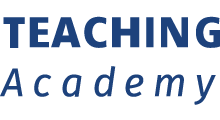
Prof Anthony S. Bryk
Anthony S. Bryk is the ninth president of the Carnegie Foundation for the Advancement of Teaching. In his current role, he is leading work on strengthening the research and development infrastructure for improving teaching and learning. Carnegie’s current priority domain is developmental mathematics education in community colleges. From 2004 until assuming Carnegie’s presidency in September 2008, Bryk held the Spencer Chair in Organizational Studies in the School of Education and the Graduate School of Business at Stanford University. His main areas of expertise are school organization, education reform and educational statistics.
Prior to Stanford, he held the Marshall Field IV Professor of Urban Education post in the sociology department at the University of Chicago. He was Founding Director of the Center for Urban School Improvement which supports reform efforts within the Chicago Public Schools and launched the University’s professional development charter school in the North Kenwood/Oakland neighborhood. Bryk is also Founding Director of the Consortium on Chicago School Research, a federation of Chicago-area research organizations that undertakes a range of studies designed to advance school improvement and assess the progress of Chicago school reform. The Consortium developed a national representation for its twin mission of conducting high quality research on urban school reform coupled with an activist public informing about these research findings.
In 2003, Bryk was awarded The Thomas B. Fordham Foundation Prize for Distinguished Contributions to Educational Scholarship and the Distinguished Career Contributions Award from the American Educational Research Association. He is also a former fellow at the Center for Advanced Studies in the Behavioral Sciences. Most recently, Boston College conferred an honorary doctorate of Human Letters for his contributions to educational reform.
Bryk recently completed a five-year field trial of the efficacy of the Literacy Collaborative Professional Development Program on teacher practice and student learning. The study entailed developing new instrumentation for assessing instructional practices, logs for detailing coaching opportunities, and piloting a formative performance assessment system for coaching practices.
His most recently published book, Learning to Improve, offers a new paradigm for research and development in education that promises to be a powerful driver of improvement for the nation’s schools and colleges. It shows how a process of disciplined inquiry can be combined with the use of networks to identify, adapt, and successfully scale up promising interventions in education.
PUBLIC LECTURE:
“Learning to Improve”
As a field, education has largely failed to learn from experience. Time after time, promising education reforms fall short of their goals and are abandoned as other promising ideas take their place. In this talk, Anthony S. Bryk will argue for a new approach. Rather than “implementing fast and learning slow,” educators should adopt a more rigorous approach to improvement that allows the field to “learn fast to implement well.”
Using ideas borrowed from improvement science, Bryk will show how a process of disciplined inquiry can be combined with the use of networks to identify, adapt, and successfully scale up promising interventions in education. Organized around six core principles, “networked improvement communities” can bring together researchers and practitioners to accelerate learning in key areas of education. Examples include efforts to address the high rate of failure among students in community college remedial math courses and strategies for improving feedback to novice teachers.
The talk will offer a new paradigm for research and development in education that promises to be a powerful driver of improvement for the nation’s schools and colleges.
WORKSHOP:
“Educational Improvement in the Context of Complexity; How We Need to Engage Educational Research and Development”
For the past five years, the Carnegie Foundation for the Advancement of Teaching has been pioneering a fundamentally new vision for research and development that joins the discipline of improvement science with the capabilities of networks to foster innovation and social learning. This talk will illustrate the six principles of improvement that guide this work. It will introduce the idea of analytically and empirically rigorous practice-based evidence for advancing quality outcomes reliably at scale. In so doing, it reframes the work of applied educational research as an effort of systematically learning to improve. It stands as a counterpoint both to policy initiatives pressing rapid large-scale implementation and also autonomous efforts engaged in by individual teachers and schools seeking to improve.


